 W
WCampaign for Socialism (CfS) is an autonomous pressure group of Scottish Labour Party members and supporters who campaign for left-wing policies and candidates within the party. In 2016, CfS agreed to a joint membership scheme with Momentum, a UK-wide grassroots movement supportive of Jeremy Corbyn and his leadership of the Labour Party.
 W
WThe Congressional Progressive Caucus (CPC) is a congressional caucus affiliated with the Democratic Party in the United States Congress. The CPC represents the most liberal faction of the Democratic Party. It was founded in 1991 and has generally grown since then.
 W
WThe Democratic Republic of Georgia was the first modern establishment of a republic of Georgia, which existed from May 1918 through February 1921. Recognized by all major European powers of the time, DRG was created in the wake of the Russian Revolution of 1917, which led to the collapse of the Russian Empire and allowed territories formerly under Saint Petersburg's rule to assert independence. In contrast to Bolshevik Russia, DRG was governed by a moderate, multi-party political system led by the Georgian Social Democratic Party (Menshevik).
 W
WThe Fabian Society is a British socialist organisation whose purpose is to advance the principles of democratic socialism via gradualist and reformist effort in democracies, rather than by revolutionary overthrow.
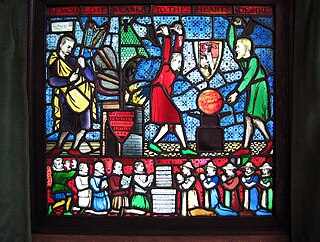 W
WThe Fabian Window is a stained-glass window depicting the founders of the Fabian Society, designed by George Bernard Shaw. The window was stolen from Beatrice Webb House in Dorking in 1978 and reappeared at Sotheby's in 2005. It was restored to display in the Shaw Library at the London School of Economics in 2006 at a ceremony presided over by then-Prime-Minister Tony Blair, emphasising New Labour's intellectual debt to the Fabians.
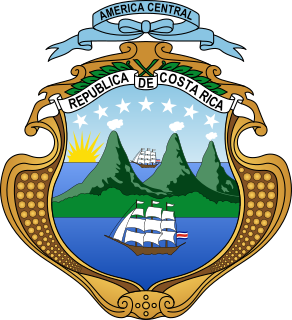 W
WFiguerism or Figuerismo is a political and ideological movement in Costa Rica of social democracy and democratic socialism initiated by José Figueres Ferrer, who exercised the presidency of Costa Rica on three occasions; as de facto ruler after the Costa Rican revolution between 1948 and 1949 and then as democratically elected president twice: 1953–1958 and 1970–1974. Several Costa Rican political parties proclaim themselves as continuators of figuerism and as their most faithful representatives, among them the National Liberation Party, Citizens' Action Party and the Patriotic Alliance, all of whom pay homage to the figure of José Figueres and have personalities in their ranks close to the former president Figueres and of figuerist extraction.
 W
WGalician Nationalist Youth, is the youth-wing of Compromiso por Galicia in Galicia (Spain). It was founded on November 2010 in the city of Santiago de Compostela as the youth-wing of Máis Galiza, and integrated within Galiza Nova and the Galician Nationalist Bloc until 10 March 2012, when the MNG broke with both organizations.
 W
WGalician Socialist Youth, was a youth political organization founded on April 25, 2009 in the city of Santiago de Compostela, that acted as the youth of the Galician Socialist Space. The organization self-dissolved and transformed itself in the Galician Nationalist Youth (MNG) in November 2010.
 W
WKarl Höchberg was a German social-reformist writer, publisher and economist, with a Jewish family background, who acted under the pseudonyms Dr. Ludwig Richter and R.F. Seifert. In 1876, he became a member of the Social Democratic Workers Party of Germany (SDAP). From 1877 to 1878, he was responsible for editing the Zukunft ("Future") magazine. He was in exile in Switzerland from 1878 onwards, first to avoid conscription to the Prussian military, and then due to the anti-socialist laws. Eduard Bernstein and Karl Kautsky were his secretaries and pupils in Zurich. Afterwards, between 1879 and 1881, he was editor of the Jahrbuch für Sozialwissenschaft und Sozialpolitik.
 W
WLeft of Center was a popular political ideology in the 1960s and 1970s in Turkey.
 W
WMarxism is a method of socioeconomic analysis that uses a materialist interpretation of historical development, better known as historical materialism, to understand class relations and social conflict as well as a dialectical perspective to view social transformation. It originates from the works of 19th-century German philosophers Karl Marx and Friedrich Engels. As Marxism has developed over time into various branches and schools of thought, currently no single, definitive Marxist theory exists.
 W
WThe Nordic model comprises the economic and social policies as well as typical cultural practices common to the Nordic countries. This includes a comprehensive welfare state and multi-level collective bargaining based on the economic foundations of social corporatism, with a high percentage of the workforce unionized and a sizable percentage of the population employed by the public sector. Although it was developed in the 1930s under the leadership of social democrats, the Nordic model began to gain attention after World War II.
 W
WOne Nation Labour refers to the theme and branding of the British Labour Party adopted by the party in 2012 under the leadership of Ed Miliband. Miliband described the "One Nation" term as being related to British Conservative Prime Minister Benjamin Disraeli's idea of One Nation conservatism. Disraeli claimed a need for government to reduce economic inequality, which he believed was splitting Britain into two nations of rich and poor people. Miliband stated that the theme of One Nation was shared by Labour Prime Minister Clement Attlee. Miliband has declared inspiration from Disraeli's and Attlee's One Nation theme, in that it challenges social barriers of class and promotes the unity of Britain.
 W
WThe Parlamentarische Linke is a platform within the Social Democratic Party of Germany (SPD)'s Bundestag group. As of 2021, 71 of the group's 152 members belong to the Parliamentary Left, making it the largest of the three extant platforms in the SPD group, alongside the Seeheimer Kreis and Berlin Network. The Parliamentary Left represents social democratic positions within the party.
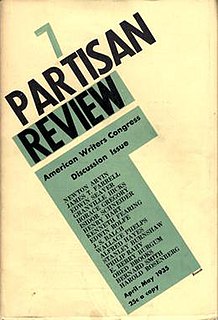 W
WPartisan Review (PR) was a small circulation quarterly "little magazine" dealing with literature, politics, and cultural commentary published in New York City. The magazine was launched in 1934 by the Communist Party, USA–affiliated John Reed Club of New York and was initially part of the Communist political orbit. Growing disaffection on the part of PR's primary editors began to make itself felt, however, and the magazine abruptly suspended publication in the fall of 1936. When the magazine reemerged late in 1937, it came with additional editors and new writers who advanced a political line deeply critical of Stalin's USSR.
 W
WPasokification is the decline of centre-left social-democratic political parties in European and other Western countries during the 2010s, often accompanied by the rise of nationalist, left-wing and right-wing populist alternatives. In Europe, the share of votes for such parties was at its 70-year lowest in 2015.
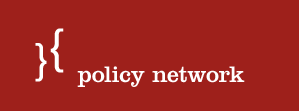 W
WPolicy Network is an international progressive think tank based in London. The President of Policy Network is former UK First Secretary of State and EU Trade Commissioner Lord Mandelson; Lord Liddle is Chairperson.
 W
WRed Vienna was the colloquial name for the capital of Austria between 1918 and 1934, when the Social Democratic Workers' Party of Austria (SDAP) maintained almost unilateral political control over Vienna and, for a short time, Austria as a whole. During this time, the SDAP pursued a rigorous program of construction projects across the city in response to serious housing shortages and implemented policies to improve standards of public education, healthcare and sanitation. Ultimately, the collapse of the First Austrian Republic in 1934 after the suspension of the Nationalrat by Bundeskanzler Engelbert Dollfuß a year earlier and the subsequent banning of the SDAP in Austria ended the period of the first socialist project in Vienna until after the Second World War. Many of the housing complexes, or Gemeindebauten, that were built during the period continue to survive today.
 W
WRedistribution of income and wealth is the transfer of income and wealth from some individuals to others through a social mechanism such as taxation, welfare, public services, land reform, monetary policies, confiscation, divorce or tort law. The term typically refers to redistribution on an economy-wide basis rather than between selected individuals.
 W
WWithin the Marxist movement, revisionism represents various ideas, principles and theories that are based on a significant revision of fundamental Marxist premises that usually involve making an alliance with the bourgeois class.
 W
WRussian Social-Democratic Union of Youth is a Russian non-governmental organization founded in December 2000 with Mikhail Gorbachev's support as a youth branch of the Russian United Social Democratic Party and a member of International Union of Socialist Youth since 2004. The chairman has been Evgeniy Konovalov since 2006.
 W
WSocialism in Canada has a long history and along with conservatism and liberalism is a political force in Canada.
 W
WThe Socialist International (SI) is a worldwide organisation of political parties which seek to establish democratic socialism. It consists mostly of democratic socialist, social-democratic and labour political parties and other organisations.
 W
WThe Three Arrows is a social democratic political symbol associated with the Social Democratic Party of Germany (SPD), used in the late history of the Weimar Republic. First conceived for the SPD-dominated Iron Front as a symbol of the social democratic resistance against Nazism in 1932, it became an official symbol of the Party during the November 1932 German federal election, representing opposition towards Nazism, communism and reactionary conservatism.
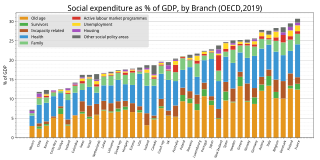 W
WThe welfare state is a form of government in which the state protects and promotes the economic and social well-being of its citizens, based upon the principles of equal opportunity, equitable distribution of wealth, and public responsibility for citizens unable to avail themselves of the minimal provisions for a good life. Sociologist T. H. Marshall described the modern welfare state as a distinctive combination of democracy, welfare, and capitalism.
 W
W